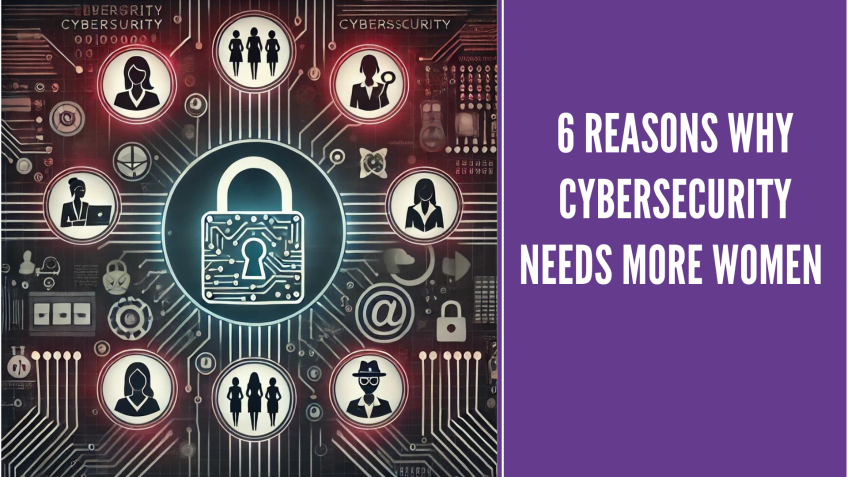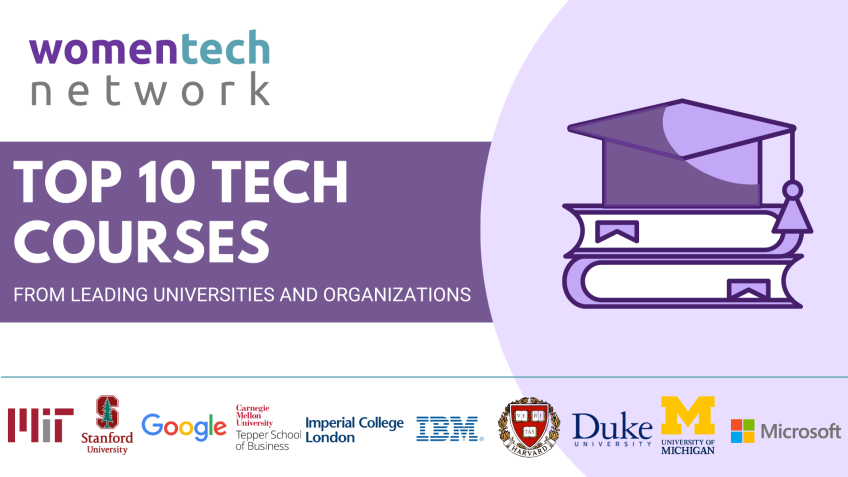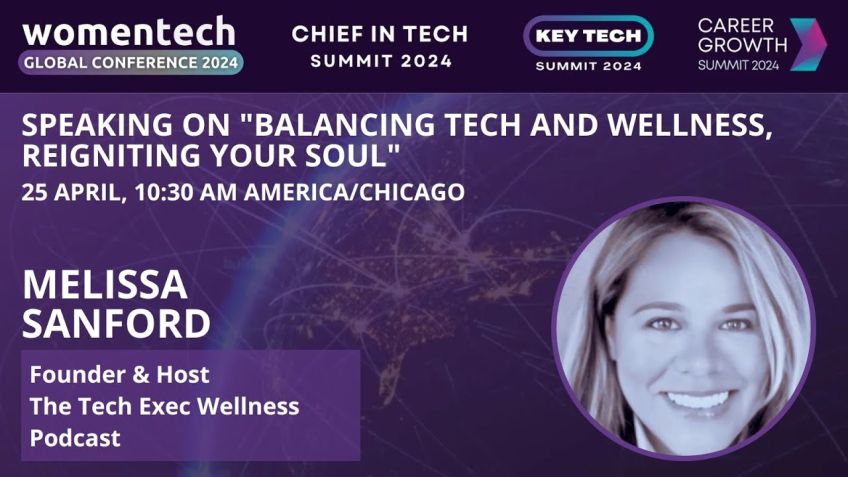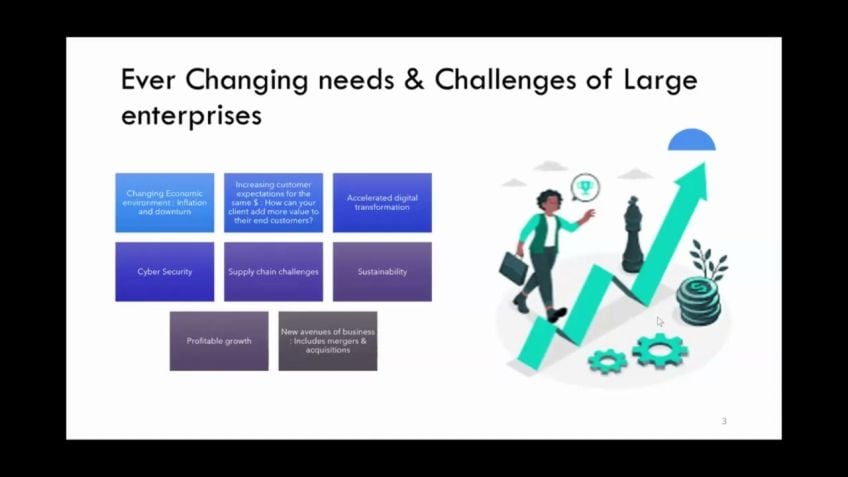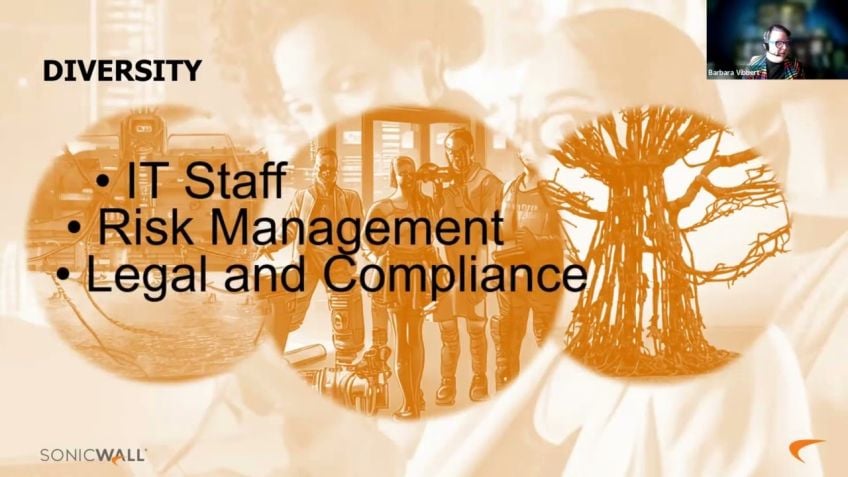Women in Cyber - The Evolving Landscape and the Impact of Diversity in the Workplace by Wendi Whitmore
An Inspiring Journey into Cybersecurity
Hi, I'm Wendy Whitmore, a seasoned professional in the cybersecurity field. My career in cybersecurity began immediately after college when I joined the United States Air Force, specifically the Office of Special Investigations. There, I traveled the world for 4.5 years performing cybercrime investigations.
In 2006, I was enticed to join the private sector and found a home at a small company at the time called Mandian. Since then, I've brought my expertise to a number of the world's leading cybersecurity firms including Crowdstrike, IBM, and today, I am leading a team of researchers, analysts, and cyber consultants at Palo Alto Networks.
Addressing the Gender Gap in Cybersecurity
Today, I want to talk to you about the role we as leaders play in educating and informing women about the opportunities available to them within the cybersecurity field. A recent report indicated that there were 2.7 million positions available in the cybersecurity industry, with an additional 700,000 positions at the government level. However, only 24% of the workforce in the cyber crime industry comprises women.
The pandemic certainly didn't help us whatsoever; one in four women considered leaving the workforce due to the impact of the pandemic, compared to less than 20% for men. The sad reality is, this gender gap struggle in IT and cybersecurity is not new, and we still need to take more significant steps to address it.
Encouraging Young Women into Tech
For this reason, Palo Alto Networks and Unit 42 are working to attract a more diverse workforce and foster inclusive environments. We're actively engaging to increase women in STEM fields and have launched a few initiatives in collaboration with the National Center for Women and Information Technology. We have also joined forces with the Girl Scouts of the USA to inspire the next generation of cybersecurity experts.
The more women of all ages we can encourage to pursue careers in technology the better it will be for the creation of more diverse and creative teams moving forward.
The Importance of Diversity in the Cybersecurity Field
Reporting to McKinsey's research, the most gender-diverse companies are 48% more likely to outperform the least gender-diverse companies. Diverse workforces provide businesses with fresh perspectives and different approaches to problem-solving which are crucial in cracking cyber crimes efficiently.
Encouraging women to enter these fields is not the only requirement. We also need to have exceptional team members to retain and help develop their careers in meaningful ways. I believe that we can strive to maintain a diverse workforce; that's how we can drive positive results from our efforts and create a broader pool of people solving the challenges that we face today.
To wrap up, I encourage women and girls everywhere, to weigh your options and consider a career in the exciting and constantly evolving field of cybersecurity. If you have questions or comments or simply wish to connect, feel free to reach out on LinkedIn or follow me on Twitter at Wendy Whitmore. Thank you.
About the author
Wendy Whitmore is a seasoned cybersecurity expert with extensive experience in the field. She currently heads Unit 42 at Palo Alto Networks where she leads a team of dedicated researchers and analysts. Wendy is passionate about increasing diversity in cybersecurity and actively encourages women and girls to pursue careers in tech.
Video Transcription
My name is Wendy Whitmore. And my career in cybersecurity began immediately after college, uh where after I graduated, I joined the United States Air Force, uh, specifically the Office of Special Investigations. And during that role, I traveled the world for 4.5 years performing cybercrime investigations.
And in 2006, when, uh, cybersecurity was really still beginning as a career field. Uh I was enticed to join the private sector and I found a home at a small company at the time that was uh a boutique firm called Mandia. Uh, since then, I've brought my expertise to a number of uh the world's leading cybersecurity firms including Crowdstrike IBM and today as head of unit 42 for Palo Alto Networks. Uh I lead a team of researchers, coders, analysts and cyber consultants who work every day to make the world a safer place for our clients. So, uh, all that said I am now also honored to have the opportunity to serve my country once again. Uh But through an appointment to the, uh DH S Cyber Safety Review Board, uh we, uh through our review process, we're committed to uh building transparency around significant cyber events and providing uh the world recommendation uh based on our findings as to how organizations can take lessons learned from significant events such as log four J for example, uh and take those findings so that they can take better and more efficient action within their organizations.
So, uh today, I want to talk to you about the role uh that we as leaders play in educating and informing women about all of the opportunities available to them uh within the cybersecurity career field. Uh And I'd also like to share some of the ways that Palo Alto networks. Uh and Unit 42 are working to attract a diverse workforce uh and foster inclusive environments. So, uh as you're no doubt aware, there is a tremendous shortage of talent in the cybersecurity industry. Um A recent number I saw indicated that there were 2.7 million positions available. Uh I believe uh another report this week mentioned 700,000 reports uh uh positions, excuse me at the government level. Um And at the same time, cyber criminals uh are showing no signs of slowing down.
So the cost to business based on their actions is quite impactful. Uh you know, the average cost of a data breach uh is now at 4.24 million and there are new ransomware victims leaked uh every four hours. So compounding the workforce shortage is that um we have a pipeline problem when it comes to talent and certainly when it comes to women. Um, so in particular women right now only make up 24% of the cyber workforce. And I know in many organizations it's actually far less than that number. Um, the pandemic certainly also did not help us whatsoever. Uh, the pandemic had a near immediate impact and effect on women's employment with one in four, considering leaving the workforce or changing roles into downshifting their careers uh versus less than 20% for men. So I, you know, the reality is a struggle is not new to be a struggle to address the gender gap. Um You know, we've been dealing with this for some time. Uh when I graduated college and entered the Air Force, I was one of only two women out of uh 64 computer crime investigators. And uh that number didn't really change for a while, right?
So years later when I went into the private sector, uh you know, I was at, at mandate when I left there, we um had 100 and 20 consultants and only three women. So, uh you know, the reality is that these challenges exist, I think the more that we're aware of them the better and there are uh the great news is there's definitely actions that we can take. Um So, you know, that says, I think I mentioned the pipeline problem. Um And that means that there's an insufficient number of young women who are choosing to focus on careers in stem and that starts not at college but really at grade school and with the ability to create awareness that these jobs exist and that women's minds work very well to solve these type of challenges.
Uh So Palo Alto Networks is actively engaged to improve this. There are a few initiatives we're participating in um that actively encourage young women to get into science and technology fields. One of those is through our workforce alliance membership and that's with the National Center for Women and Information Technology. And we're working to increase the pipeline uh specifically through grades K through 12 in the industry. So some of the activities that we're participating in, there are developing toolkits for high schools and community college to increase awareness of cybersecurity careers. Uh We're sponsoring a Computing Collegiate Award for Cybersecurity and uh sponsoring the annual summit for leaders uh to include focus on diversity and inclusion in computing. Uh One of the areas and actions that is certainly close to my heart is that we've also joined forces with the girl scouts of the USA to inspire the next generation of cybersecurity experts. So, uh the first ever national cybersecurity badge program provides access to cybersecurity education for girls throughout the United States and encourages their deeper engagement in stem activities um and allows them to become much more aware of the jobs that we have open in our field.
Uh I think that it goes without saying that the more women of all ages that we can encourage to pursue careers in technology, whether from a very early age or perhaps as to cross training into uh the market. Uh the better it will be for us to be able to create these more diverse teams moving forward. Um I also think it's very important for us to see other people who look like us, people who look different than us to really enable that to inspire the next generation. Um I think back as to how I landed in Cyber security, uh and became a computer crime investigator in the Air Force. Uh It wasn't, uh it wasn't my first path because I didn't even know this path existed. And, uh, you know, I initially went into Air Force RT C wanting to be an Air Force fighter pilot. Uh, that was my dream and as I had the opportunity to fly some more in college, I realized that I wasn't that good at it and I didn't love it quite frankly, the way that I felt like I should and the way I could tell my peers did.
And, um, you know, as a turns out, we ended up having a career day my senior year where alumni from the university came in and there were a number of people who came in, in flight suits in camouflage, in our, you know, our mess dress, our suits. And then there was one woman who came in and she was wearing a black suit, not a uniform and carrying, uh wearing high heels, carrying a gun. And she was incredibly impressive, incredibly smart, smart, very well spoken. Um And I asked myself, what does she do? And as I learned about her career field, uh she explained that she was conducting criminal investigations on behalf of the Air Force and explained about what her job was. And it was definitely at that pivotal moment that I thought I want to do what she does. And I think so many of us have the opportunity to inspire other young women in a very similar way, uh that the more we can get out there from the front and share these stories, the better. Um, you know, I think being in a male dominated industry is nothing new for most of us. Um I personally find it very rewarding. Um, you know, I think that I, I don't know that I've succeeded because I'm a woman. I think I've succeeded, you know, because I worked very hard and worked with my peers and been a great team player and had some opportunities that I was able to capitalize on.
Um And I want all of us to be thinking about how do we create those same type of opportunities for uh future women moving forward? Um So a couple things on some research, so a recent piece of mckinsey research um on how to advance women and retain them in tech fields. Found a correlation between diversity and leadership and improved financial performance for the company. Um The research indicates that most gender diverse companies are 48% more likely to out perform least uh gender diverse companies. So clearly diverse workforces provide businesses with fresh perspectives, different approaches to problem solving. And when you're looking at cyber security and in particular, the types of work my teams do which are solve breaches or uh conduct intelligence analysis. We need people who think very differently about how to approach these problem sets uh in order to solve them as quickly as possible.
Uh So it's not only important that we encourage women to enter these fields, but then once we uh have exceptional team members that we do everything we can to retain them and help develop their careers in meaningful ways. Uh So, you know, over the course of my career, I've had the privilege to recruit and train uh thousands of team members at this point. And I think the more that we can strive to attain and maintain a diverse workforce, um the more that we can as business leaders really drive positive results from those efforts, both and not only in the way for others to join our field, but then to really benefit from uh the dynamics of their creativity and a broader pool of people that are solving the challenges that we face today.
So all of that said, thank you again for the opportunity to speak with you today. Um Certainly welcome questions or comments uh either in this forum or after and uh feel free to connect with me on linkedin or follow me on Twitter at Wendy Whitmore. Thank you.
Fantastic. Thank you, Wendy. Thank you for sharing your story. I will make sure to share your linkedin and your Twitter so people can connect and follow, ask their questions. Let's uh give a huge round of applause to Wendy for this fantastic story today. Do you have any questions?
We still have time and I something I want to also highlight something that you share did resonate with me. And that's why we organize an actual women, women and tag global conference. So what you said by sharing our stories, we can inspire younger generations and that, that is so true because they're looking for role models, you know, when they see when they see Wendy and they think, OK, I can also become senior Vice President Biden. I can also make a change. I can also be at the top of the company, you know, just like she does and she's my inspiration and she's my role model. And we have also, yeah. And we also have questions here. What was the main challenge in your career?
Oh, that's a good one. I'm laughing because I don't think there is one main challenge, right? I think it's a series of challenges um, that we experience every day and, you know, it's funny because I, um, so I have, uh, three stepdaughters and, um, I talk to them a lot about, you know, the challenges that they face in their day. Right. They're in college, high school and elementary school. So very spread out. And, you know, I think sometimes that we as women and we as humans feel like the challenges that we face on a daily basis are unique to us and they alone, right? Like I'm the only one that feels a sense of anxiety, for example, um I'm super nervous about this job interview or this meeting with my boss or a test or school pictures and how I'm going to look, you know, taking them. These are all challenges that we go through on a daily basis. And to me, I think the most powerful thing uh that we can all learn is one we're not alone. Um It's, you know, and you're not alone to think that like, oh I'm going into this meeting and I'm nervous and maybe I'm not qualified. Uh Even men think that way, right?
We all think that way it joins and if we can learn to harness that voice inside our head, that's kind of telling us that maybe, maybe I don't deserve to be here and channel it into. I I've earned the right to be here. I'm gonna work uh harder than anyone to continue to be here. I'm gonna be prepared. Um, and then when I come into whatever this event is, uh, you know, I'm gonna feel so much better about being there and I'm gonna demonstrate to everyone around that I have the, uh, you know, I, I certainly have a very powerful voice here. I think the more that we can kind of quiet that inside voice and channel the better. And to me that's the biggest daily challenge that I think most any human beings face.
Absolutely. I can totally relate to that. And I think today, one of our speakers shared, am I good enough? Yes, I am. And if you are going to believe in that, that the others are going to believe in that too, right? Because if you are not believing, who else is going to believe you totally. Yeah. So I think that that's a really important point to make and to address. Um here is another question for someone who is trying to break into cybersecurity field, what we are in the tech field and what are the basic requirements to join the cybersecurity?
Yeah. OK. So first and foremost, I love this question. Uh because if you're already in the tech field, chances are you're working at an organization. And um you know, I would say every organization absent, maybe, you know, a really super small tiny company is going to have um some sort of security needs. And so what that means is you may have an opportunity to get to, uh, meet some of the personnel within your organization that you can really pick their brains and get an understanding of. What do you do on a daily basis and security? What are the biggest challenges that our company faces? Um, that said educationally awesome news that there's so much more information online than there ever has been before. Uh So I'm always gonna recommend going to SANS and sit. That's SANS. Um They're really the leading provider of education materials in our field and they have so many free online resources with curriculum that details out like for every type of career field where you might want to start. It has great cross training references. Um And so I would certainly start there and then from there you the really the sky is your limit, right? And also just reading the blogs of security, uh companies of cybersecurity companies throughout the world.
There's so much information that we are all sharing uh freely available that can really uh you you can learn so many things from and then podcasts, right? Tons of great podcasts out there. Cyber Wire is one that I listen to daily uh has such great information as to what's going on in the world.
Great. Thank you so much and we are just perfect with time. So, podcasts, different uh different resources that you can find. And I think talking also to people that work already at the companies which have cybersecurity field. And I think one of one of the ways to figure out also to be at the events like ours and to talk to Palo Alto Networks about the open roles and see, maybe it will be your next move there. Thank you so much, man. Thank you for being with us. It was a real pleasure and I'm wishing you a great day. Thank you for sharing your experience.
Yes. Thank you so much. Everyone have a great day.

